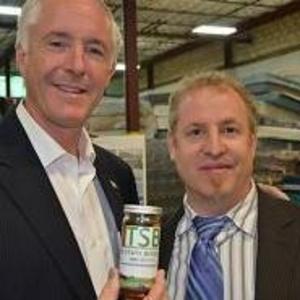Tri-State, LARD purchase Bridgeport Biodiesel; upgrades planned

Photo: Tri-State Biodiesel
November 18, 2013
BY Tri-State Biodiesel
New York City-based Tri-State Biodiesel and its parent company, The Sustainable Biodiesel Company, have partnered with New Jersey-based Lard-NABF LLC (LARD) to purchase and upgrade the Connecticut-based biodiesel production business, Bridgeport Biodiesel.
This partnership unites one of the region's largest cooking oil-to-biodiesel recyclers with one of few biodiesel production facilities in the area and creates a powerhouse synergy of raw material access and biodiesel production capability. Through this deal, Bridgeport Biodiesel also leverages TSB’s extensive biodiesel fuel distribution network, supplying both wholesale and retail products to gas stations, trucking fleets and heating oil consumers throughout the region.
Bridgeport Biodiesel is a fully permitted and operational 1-3 MMgy biodiesel facility constructed in Bridgeport, Connecticut’s visionary Eco-Industrial Park. Fully operational in 2012, the plant is engineered and permitted to produce biodiesel from a variety of feedstocks, including yellow and brown grease. Ownership of the plant is transferred to the TSBC/LARD partnership with Tri-State Biodiesel’s CEO, Brent Baker, as the new operations director of the facility.
Advertisement
Advertisement
The partnership also pledges additional capital to upgrade the plant with robust new third-generation technology, which dramatically increases the efficiency and throughput capability at the site. Completion of the expansion is expected by 3Q of 2014, bringing the total biodiesel production capacity on site to 8-10 MMgy.
Effective immediately, TSBC subsidiary Connecticut Biofuels will be headquartered at the Bridgeport Biodiesel site. Connecticut Biofuels is Connecticut’s longest running in-state cooking oil recycler. This will allow for locally sourced cooking oil to supply the Bridgeport plant.
Advertisement
Advertisement
TSBC, which also produces algae oil through its partnership with The BEAR Group, is seeking additional space within the Eco-Industrial Park to build a commercial-scale algae farm that will provide the biodiesel facility with additional sustainably produced, carbon-neutral feedstock.
The new projects announced are anticipated to bring an additional 50 green-collar jobs that provide living wages, benefits and a dignified career pathway to an area with a historically high rate of unemployment and poverty. These projects establish Bridgeport and the state of Connecticut as national leaders in the sustainable biodiesel economy.
TSBC is the parent company of Tri-State Biodiesel, Connecticut Biofuels, Washington, D.C.-based Beltway Biodiesel, and Boston-based Independence Biodiesel. Through its network of subsidiary companies, The Sustainable Biodiesel Company is one of the larger regional oil recyclers, collecting cooking oil from more than 5,000 restaurants from Virginia to Maine. The company was one of the first in the Northeast to offer free cooking oil-to-biodiesel recycling, and the first in New York City to supply biodiesel fuel to private fleets and gas stations.
Lard-NABF LLC is owned by Alan and David Wormser who also own Wormser Corp., a leading global importing and exporting company specializing in cosmetics products and packaging. The company has offices in the U.S., Germany, Great Britain, and China. LARD has had a long history in biodiesel related activity, including funding development for the original Bridgeport Biodiesel process equipment.
Related Stories
The U.S. Energy Information Administration maintained its forecast for 2025 and 2026 biodiesel, renewable diesel and sustainable aviation fuel (SAF) production in its latest Short-Term Energy Outlook, released July 8.
XCF Global Inc. on July 10 shared its strategic plan to invest close to $1 billion in developing a network of SAF production facilities, expanding its U.S. footprint, and advancing its international growth strategy.
U.S. fuel ethanol capacity fell slightly in April, while biodiesel and renewable diesel capacity held steady, according to data released by the U.S. EIA on June 30. Feedstock consumption was down when compared to the previous month.
XCF Global Inc. on July 8 provided a production update on its flagship New Rise Reno facility, underscoring that the plant has successfully produced SAF, renewable diesel, and renewable naphtha during its initial ramp-up.
The USDA’s Risk Management Agency is implementing multiple changes to the Camelina pilot insurance program for the 2026 and succeeding crop years. The changes will expand coverage options and provide greater flexibility for producers.
Upcoming Events










